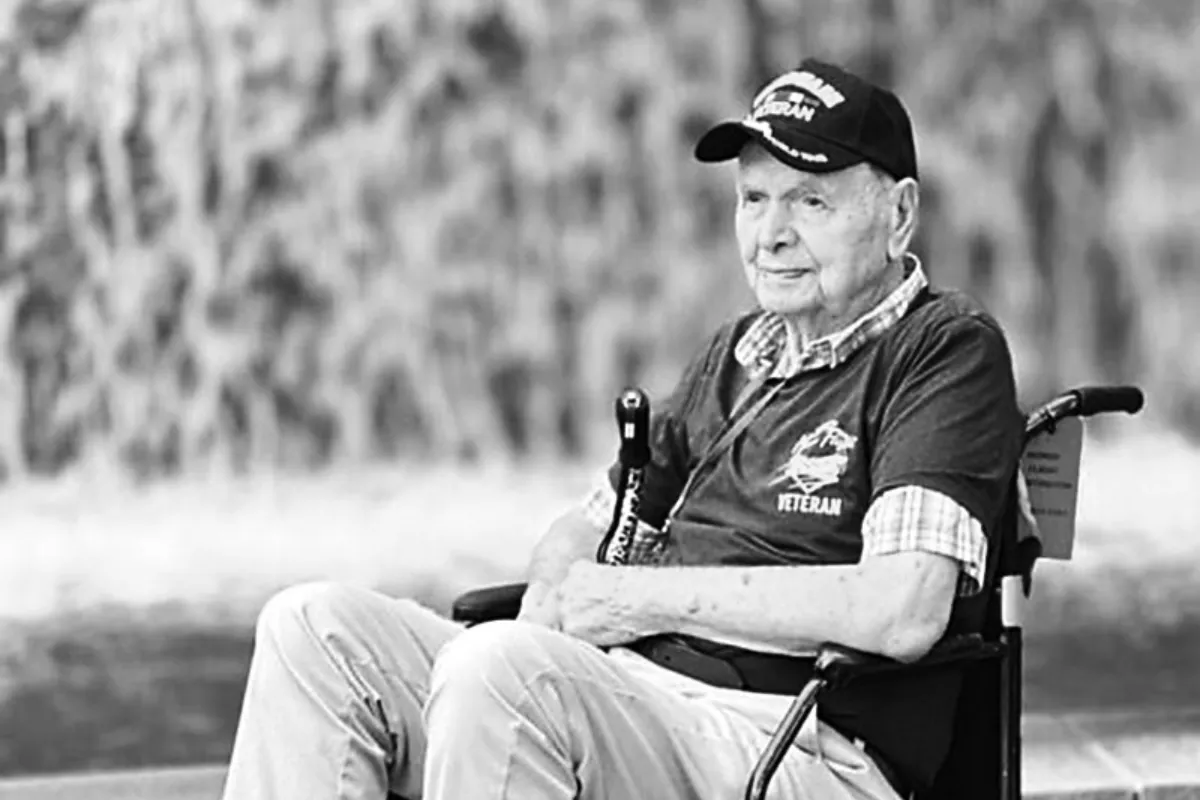As the world pauses to remember the 81st anniversary of D-Day—the historic Allied invasion of Normandy—one man in Ohio is quietly reflecting on a different front of World War II.
Francis Dalton, originally from Maidsville in north-central West Virginia, never served in Europe. Instead, he fought in the Pacific Theater, where the dense jungle and unforgiving terrain were just as treacherous as the beaches of France.
And though he witnessed the horrors of war firsthand, one memory has stayed with him above all: a moment of unexpected humanity.
A Soldier’s Standstill
Dalton will never forget the rustling on the other side of the jungle wall. Years later, he can still recall how alert and tense he felt—wounded twice already, his nerves sharpened by experience.
Then, through the brush, a Japanese soldier emerged. Both men froze, each assessing the other in a split-second that felt like forever.
Dalton, the young American who had enlisted after Pearl Harbor. The Japanese soldier, shaped by generations of honor and tradition.
Then something remarkable happened. The Japanese soldier bowed—and surrendered.
Remembering D-Day from Another Front
Today, while many look back on the events of June 6, 1944, through documentaries, photos, and Hollywood dramatizations, the number of living WWII veterans is shrinking fast.
According to the National WWII Museum, only around 65,000 American veterans of the war remain. In West Virginia, that number was down to 196 last year. Francis Dalton is one of them.
While Allied forces fought through gunfire on the beaches of Normandy, Dalton was across the world, serving with the 65th Brigade Engineer Battalion. His role involved building bridges and roads under fire.
During one battle, a fellow soldier was killed in front of him when their armored bulldozer became a target. Like many in the Pacific, Dalton also battled malaria along with enemy forces.
A Story Not Easily Told
For years, Dalton didn’t talk much about his time in the war. Now 99 years old and recently transitioning to a nursing facility at the Louis A. Johnson VA Medical Center in Clarksburg, he has started to open up.
One of the first stories he shared was that unforgettable encounter with the Japanese soldier who chose surrender over death.
“He didn’t tell it like a war story,” said his stepdaughter Terry Bailes. “He said he had never felt more scared or vulnerable in that moment.”
Dalton had been steaming across the Pacific when the atomic bomb was dropped on Hiroshima. He was honorably discharged a month later.
Despite everything he experienced, Dalton said he never thought of the Japanese soldiers as “the enemy.”
That surrender, he said, changed how he viewed it all.
“We were all the same,” Dalton said. “Young, and following orders.”
Dalton’s story reminds us that even in the darkest chapters of history, moments of compassion and humanity can still shine through. As the world looks back on D-Day and the bravery it symbolizes, his memory adds a quieter, but no less powerful, note of reflection.
















